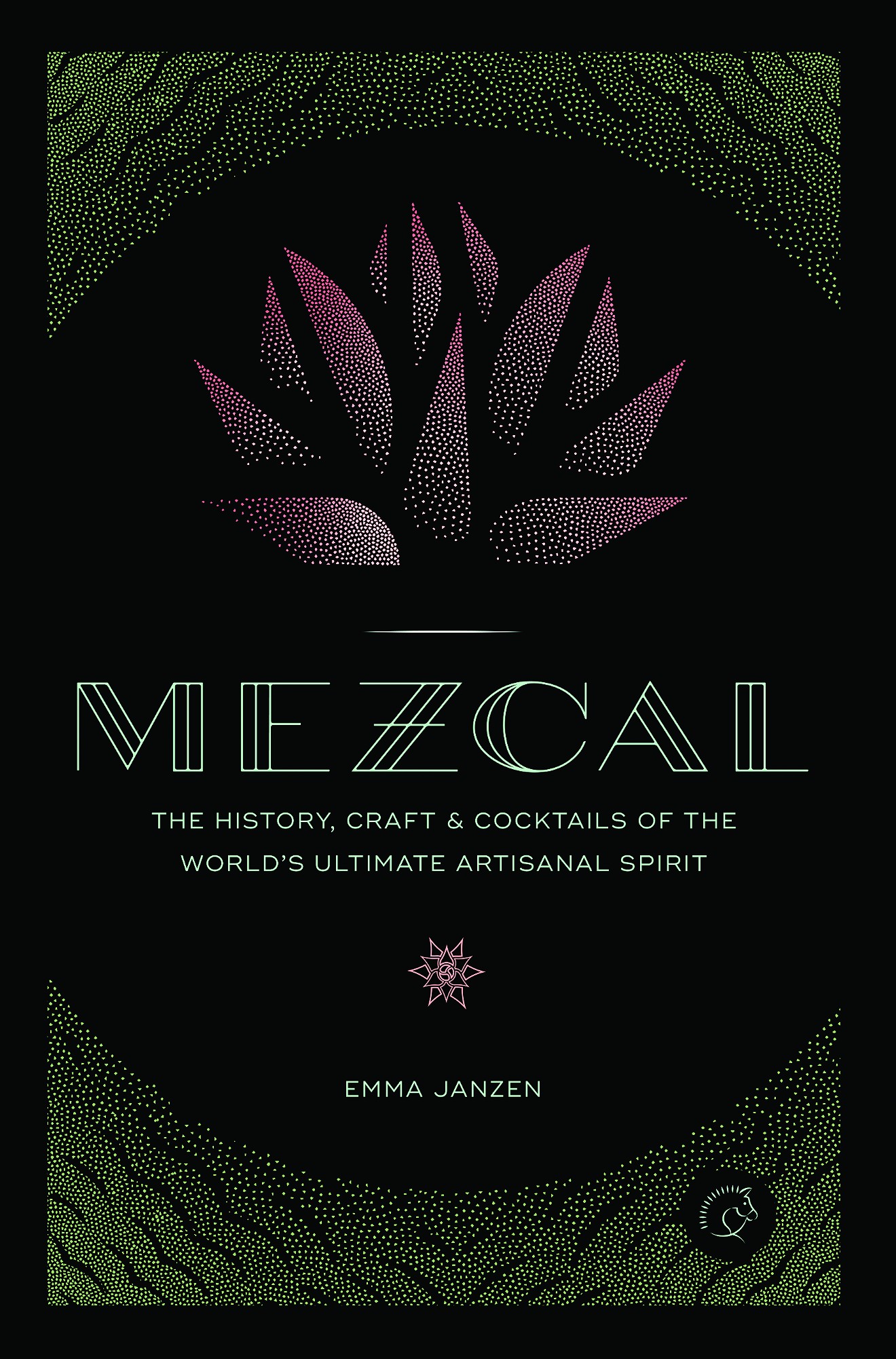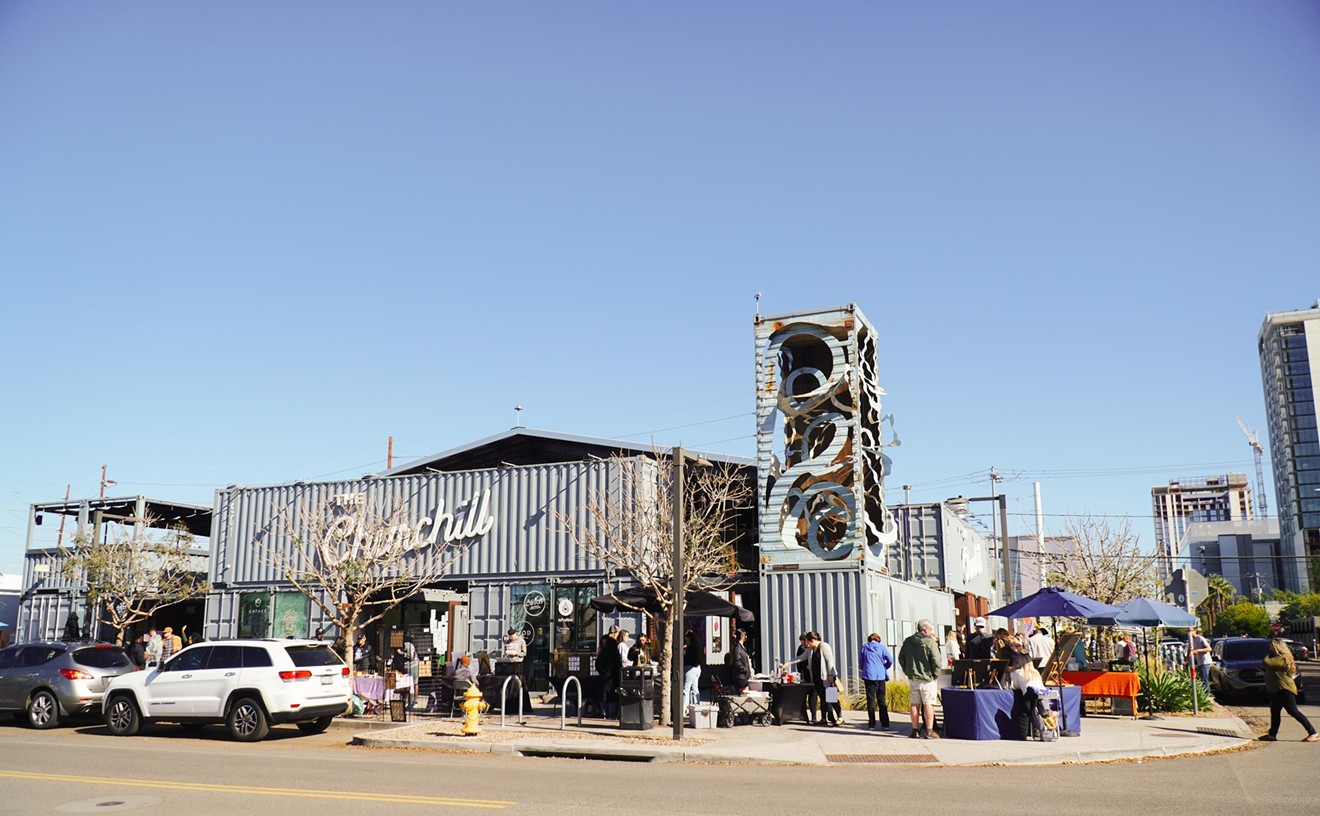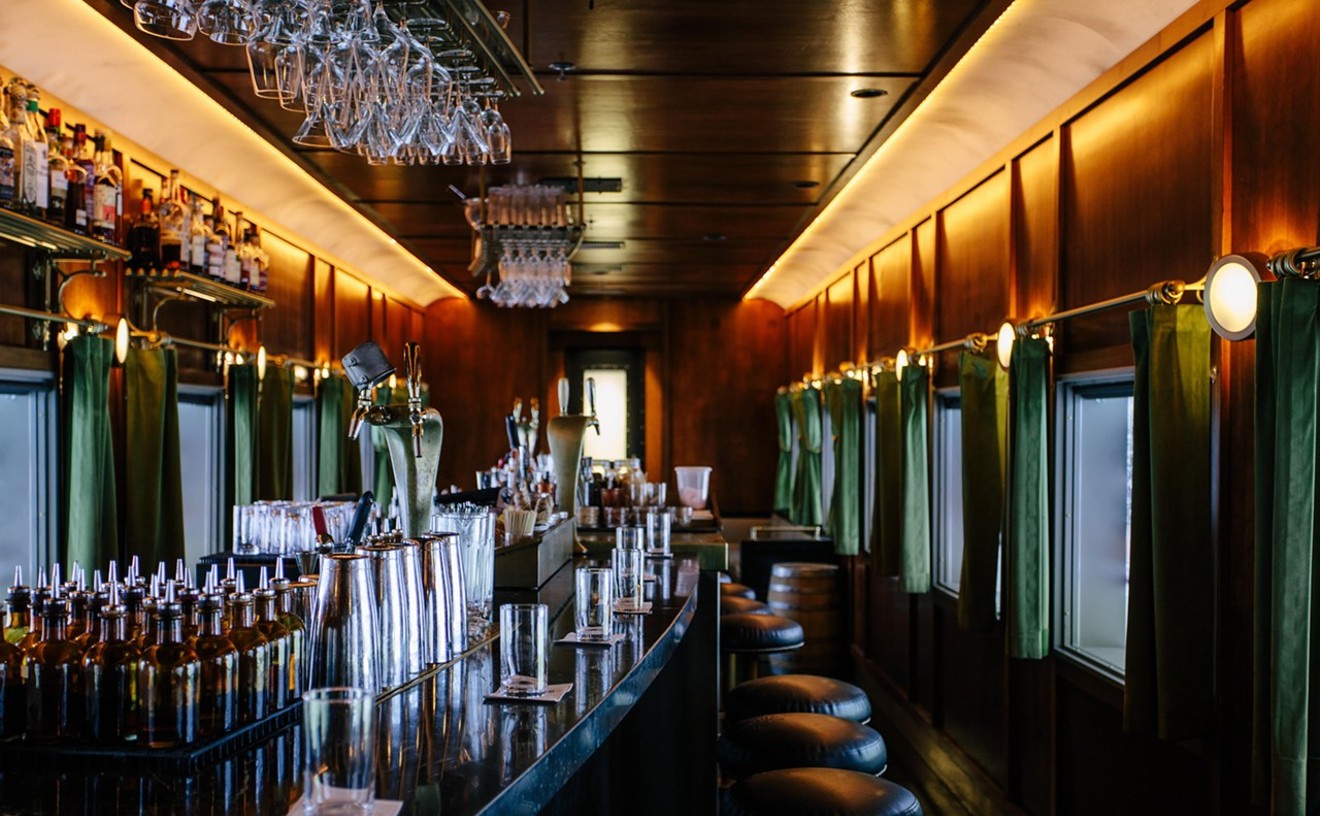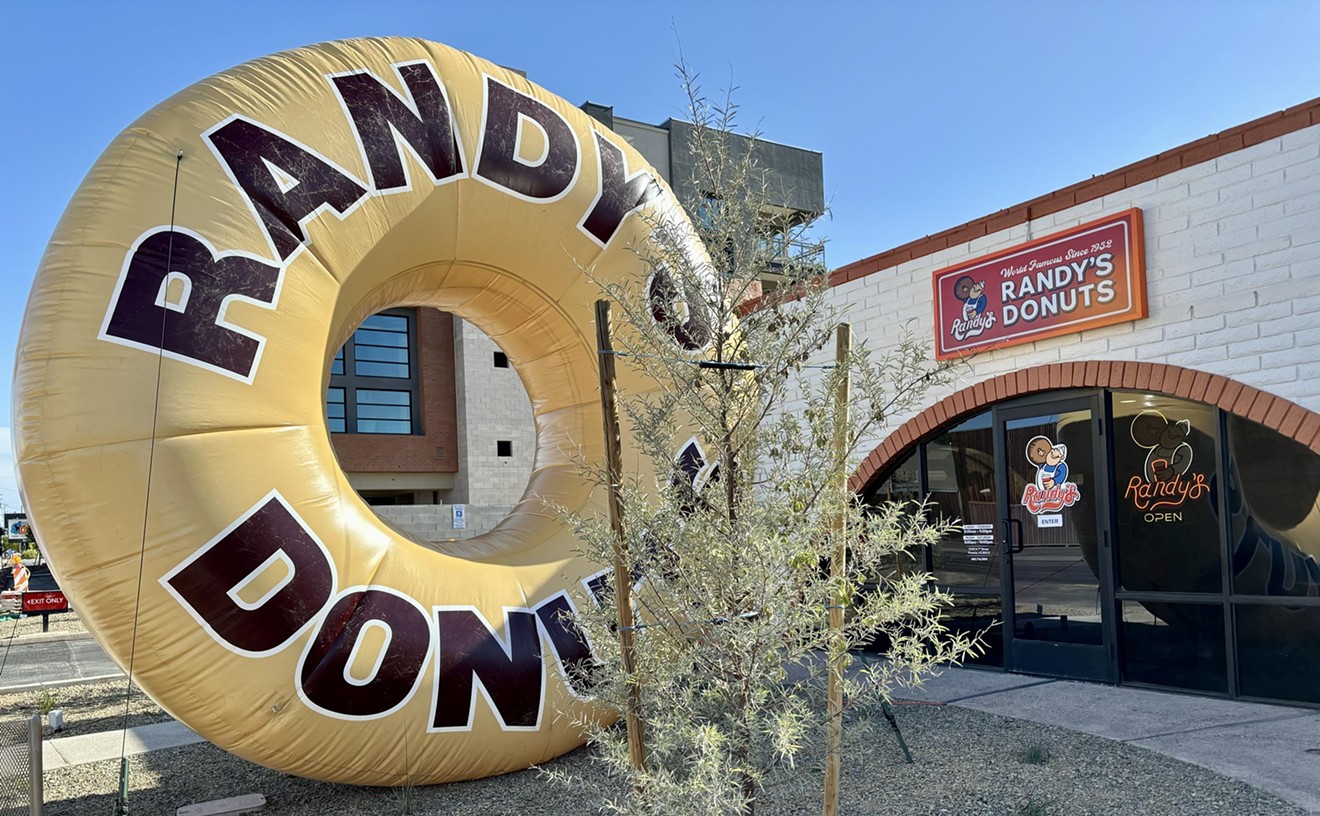I caught up with Janzen to talk about the magical quality of mezcal, and, of course, cocktails.
You describe your book as a user-friendly guide to mezcal. But it is a whole lot more than a collection of recipes or tasting notes. Can you describe your vision for Mezcal?
There aren't many one-stop resources out there that detail all the fundamentals of how mezcal is made, how to drink it, how to mix with it, etc., so I wanted to produce a clear and concise guide that people can use to get to know the spirit and its intricacies. That might sound boring, but it's not meant to be a dry, encyclopedia-like volume stuffed with only facts and figures. Instead, it's a friendly guide with tons of photos, tips, and a collection of what I think are the best mezcal cocktails in bars right now.
My internal mantra was "a modern and practical guide," because I want people to walk away with an understanding of how and why this amazing spirit has propelled into the spotlight over the past few years, while also giving practical tips on how to enjoy it.Spirits don't exist in a bubble, and mezcal, in particular, comes from a country where there are so many challenges in place that must be overcome to get something like mezcal from plant to the glass.
tweet this
There's also an emphasis on the culture and customs that surround mezcal with the voices of the people at the forefront of the narrative. The story of mezcal is their story and not mine, so while I do a fair bit of recounting my own experiences learning about the spirit, I really aimed to give them a platform to speak about their culture and processes. I hope that comes across!
What was it that made you fall in love with mezcal?
Quite simply put: It's all about soul. I love how unadulterated and raw most mezcal tastes. At the small-scale, artisanal level, mezcal is made largely with natural resources and organic processes, so: agave that's been cooked with fire and wood and stone instead of mechanical steamers, fermented with wild yeast instead of commercial strains, and distilled in clay or copper over burning firewood. There aren't dials and switches and other modern technologies to aid in the distillation process; it's just the distiller and his knowledge, sight and smell and intuition.
Everything about it is rustic, and that produces a spirit that tastes rough and earthy because there's nothing there to adulterate or dilute its soul. Granted, not ALL mezcal is like this (in fact, there's an increasing amount of mezcal that is the opposite — mass-produced, diluted, and stripped of flavor), but when you find one that is, it's enough to stop you in your tracks.
I also love the diversity that can be found in the category. No two mezcals will ever taste exactly the same, even if they're made from the same type of agave, because a dozen factors influence the flavor. Everything from the agave varietal to where it's grown, how it's fermented, distilled, and then what happens after that make an impact on the final product.
You have said before that you chose to focus on mezcal because of its cultural significance. Can you tell us more about that?
I've always been most drawn to spirits that have a clear sense of terroir. Mezcal fits that bill more than most other beverages; it's an incredible expression of the place where it comes from and the values and culture of the people who make it. There's nothing more interesting to me than discovering the reasons why a spirit like mezcal is so perfectly representative of its birth country.
The agave plant has always held a sacred place in Mexican culture — it was used for food, fabric, medicine, and building materials for centuries. It's also the raw material used to make all sorts of beverages, from aguamiel to pulque and of course, mezcal. So the spirit has long played a role in Mexican history, and you can find myths and origin legends about the spirit dating back to Aztec times.Everything about it is rustic, and that produces a spirit that tastes rough and earthy because there's nothing there to adulterate or dilute its soul
tweet this
What were the most surprising things you learned from the mezcal producers during your research?
From an American perspective, there is a magic and mysticism to mezcal — I think Ron Cooper was the first one to say something along those lines when I first met him back in 2009 or 2010 or so. When he talks about mezcal, he lovingly calls it "liquid art," and it's hard not to feel inspired to start unpacking all the layers that go into that description.
But when I really started digging into the history and culture surrounding production, one of the things that struck me most vividly was the reality of the situation — when you get down to Mexico and start peeling back the veil and talking to the people who make mezcal, you quickly realize it's about more than creating a beautiful spirit and winning awards and being the best in show (in the same way many American craft distillers set out to do).
For many families operating at the small-batch, artisanal level right now, it's also simply about putting food on the table. So many communities where mezcal is made sit below the poverty level, so it's about more to these families than making a pretty thing to drink. A lot of producers I talked to for the book take great pride in carrying on the traditions of their families, but also feel proud to be able to do that as a means of making money, too.
What do you think of the mezcal trend in America?
I think mezcal often gets too glamorized here in America, and I understand why — so much of the spirit's history and culture is romantic, especially within the context of a world where so many booze brands are soulless and lacking in rich, centuries-old history — but now, every time I spend what seems like a lot of money on a pour of mezcal from a respectable brand, I feel good about that because I can see the families I'm helping support in my mind's eye in the process.
Making mezcal is back-breaking work at the artisanal level, and a logistical mountain to climb in terms of getting everything certified and exported, so I've learned to respect the smaller producers even more for persevering to make it all happen.I wanted to produce a clear and concise guide that people can use to get to know the spirit and its intricacies
tweet this
One thing that's also important to note is that a lot of American journalists and bartenders speak about mezcal as if every release comes from the same kind of production facility/brand, and that's not true.
There are mezcals that come from small-batch operations, created in an artisanal manner by people working with generations of heritage knowledge, and then there are the big industrial producers who gobble up tons of agave plants and use technologies that are good for efficiency but not so great for flavor or preserving culture.
It's important to make a distinction between the two, because the latter have more funds and more power to change the industry right now, but what we as consumers should be wanting and be supporting are the little guys, because they're making product that is stunningly beautiful and diverse but also carrying on the cultural tradition of making mezcal.
What is your favorite mezcal?
One of my favorite mezcals right now is Rey Campero's Madre Cuishe. It's got this bright, lemon and peach high note that's undercut with a charcoal-like smoke. Contrast that with El Jolgorio's Mexicano, which screams with this verdant fresh grass and sweet pineapple flavor, and the differences are insane. You could try a new mezcal every day and find something totally different than the one before. It's delightful.
What is the best way to start getting to know this unique spirit for those who haven't enjoyed mezcal before?
Because every mezcal is so different from the next (and the great ones usually call for a pretty penny), going to the liquor store and trying to pick out a bottle on your own is a pretty serious gamble. I don't recommend it until you have a better sense of what you like and what brands are respectable and worth checking out.
Instead, seek out the bar with the best mezcal selection in your city and go on a quiet night — like Monday or Tuesday — so you can chat up the bartender without getting in the way. Chances are, if the staff is well-trained, you can find someone who will be able to help guide you towards something you will enjoy. Bartenders at mezcal-focused bars have the opportunity to taste everything and really get to know the spirit on a daily basis, so they're going to have a sense of what might work based on what you're looking for.
It'll help if you go in prepared, too, so knowing if you want something soft and subtle versus a little rougher around the edges, or if you prefer something fruity versus grassy — those are things to keep in mind when trying to articulate what you think you might want to try. Those kinds of descriptors will help the bartender find a good match for you.
How do you feel about mezcal in cocktails?
A lot of purists will tell you to stay away from mixing mezcal into cocktails because it's untraditional and tastes so perfect on its own (and because it encourages high-volume production, which isn't always the best for an industry like mezcal that relies on raw material that's as unique as the agave plant, but that's a much longer story), but cocktails are one of the reasons why mezcal has hit it off so swiftly in the U.S., and I personally love a good mezcal cocktail on occasion. It's an incredibly versatile ingredient within the cocktail framework.
When I started putting recipes together for the book, I knew there were some classics that needed to be included (Mezcal Negroni, Paloma, Mule, etc.), but I was pleasantly surprised to find out exactly how many kinds of cocktails taste better with a bit of mezcal.
It's obviously great with Mexican ingredients like pineapple, lime, prickly pear, and chili peppers, but it's also brilliant when paired with certain kinds of Italian Amari, fortified wines, and even other spirits like rum and whiskey.The spirit has long played a role in Mexican history, and you can find myths and origin legends about the spirit dating back to Aztec times.
tweet this
Keep in mind, most mezcals land on the higher end of the proof section, so check the ABV before you unknowingly drink two or three mezcal margaritas and find yourself unable to function properly.
As you send this book into the world, what are your hopes?
I hope my book inspires people to try mezcal, if they haven't had it before, or enriches their understanding and appreciation of the spirit if they're already a fan.
I hope it does these things within the context of celebrating how mezcal is such a beautiful and intrinsic part of Mexican culture, though.
Spirits don't exist in a bubble, and mezcal, in particular, comes from a country where there are so many challenges in place that must be overcome to get something like mezcal from plant to the glass.
I think appreciating what goes into making a bottle is just as important as enjoying the flavor of a pour. We're fortunate to have access to this amazing spirit from our friends south of the border, and if we support the right producers — the artisanal ones who are helping continue centuries of culture and making gorgeous, traditional products — that'll help ensure a brighter future for the category.
Division Bell
1½ ounce Del Maguey Vida mezcal
¾ ounce Aperol
½ ounce maraschino liqueur
¾ ounce fresh lime juice
1 grapefruit twist, discard
Shake mezcal, Aperol, maraschino liqueur, and lime juice together with ice.
Strain into a chilled cocktail glass.
Express the oils from a grapefruit peel over the top of the drink and discard peel.
Serve immediately.
Recipe courtesy of Mezcal: The History, Craft & Cocktails of the World's Ultimate Artisanal Spirit (Quarto Publishing Group, 2017)














